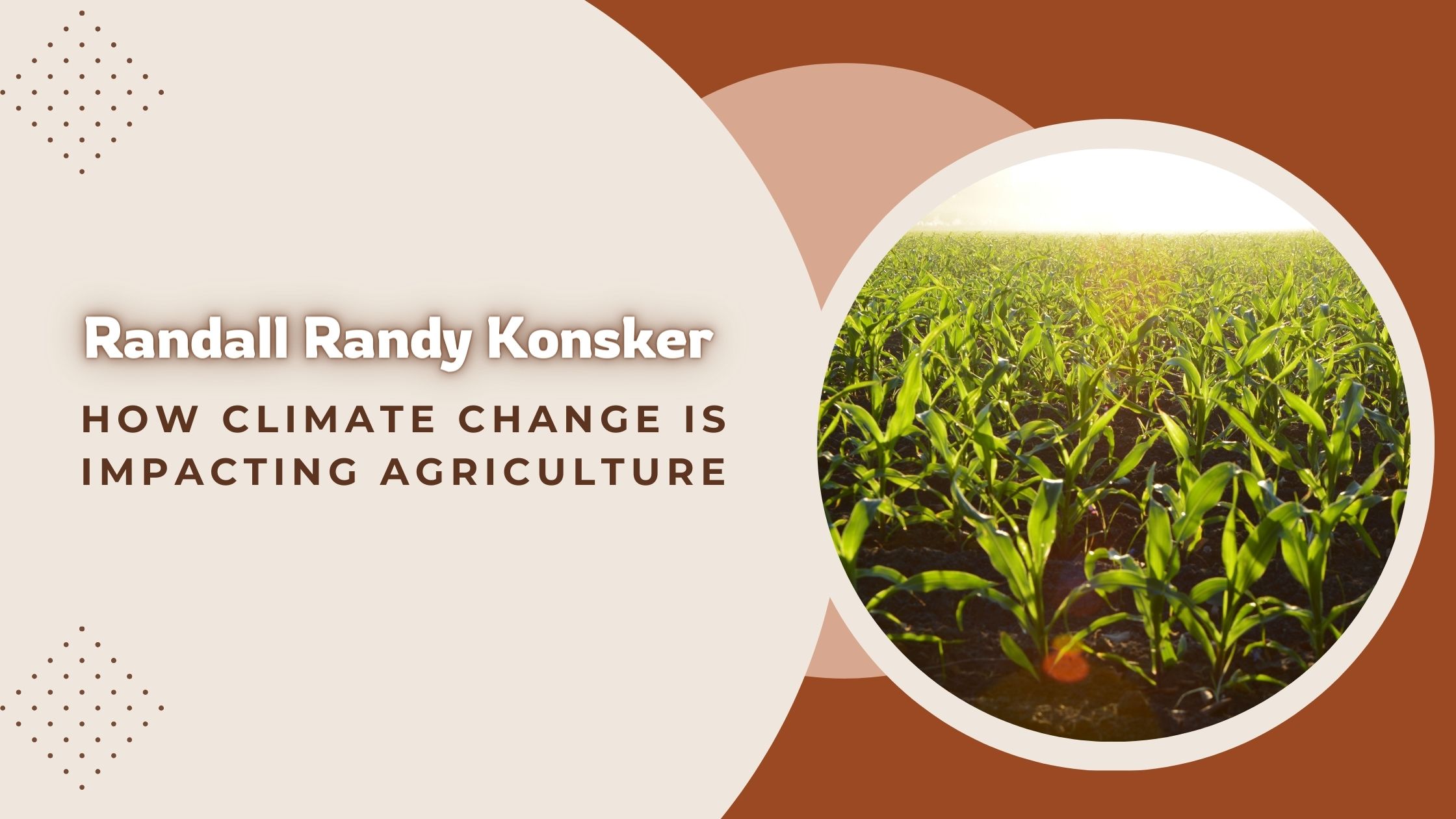Randall Randy Konsker - How Climate Change is Impacting Agriculture
 Randall Randy Konsker
Randall Randy Konsker
In agriculture, the looming specter of climate change casts a long shadow over the livelihoods of farmers and the global food supply. Randall Randy Konsker, an Agriculture Consultant, offers invaluable insights into the ways climate change is reshaping agricultural landscapes. With his expertise and experience, Konsker sheds light on the challenges and opportunities that lie ahead for farmers worldwide.
1. Altered Growing Seasons
One of the most visible impacts of climate change on agriculture is the alteration of growing seasons. Shifts in temperature and precipitation patterns disrupt traditional planting and harvesting schedules, forcing farmers to adjust their practices or risk crop failures. In regions accustomed to distinct seasons, such as temperate climates, unpredictable weather can lead to mismatches between planting times and optimal growing conditions, reducing crop yields and profitability.
2. Increased Pest and Disease Pressure
Rising temperatures and changing rainfall patterns create favorable environments for pests and diseases to thrive. Warmer winters allow certain pests to survive and proliferate year-round, while excessive rainfall or drought weakens plant immunity, making crops more susceptible to infestation and disease. Farmers must invest more resources in pest management strategies, including the increased use of pesticides, to protect their crops, leading to higher production costs and environmental concerns.
3. Water Scarcity and Irrigation Challenges
Climate change exacerbates water scarcity in many agricultural regions, as shifting precipitation patterns and increased evaporation rates diminish water availability for irrigation. Droughts become more frequent and severe, placing stress on water resources essential for crop production. Farmers must adopt water-efficient irrigation techniques, such as drip irrigation and rainwater harvesting, to mitigate the impact of water shortages and ensure the sustainability of agricultural practices.
4. Threats to Livelihoods and Food Security
The cumulative effects of climate change on agriculture pose significant threats to farmers' livelihoods and global food security. Crop failures, reduced yields, and increased production costs undermine the economic viability of farming operations, particularly for smallholder farmers in developing countries who lack resources to adapt. Furthermore, disruptions in food production and distribution chains can lead to food shortages and price spikes, exacerbating hunger and poverty in vulnerable communities.
Subscribe to my newsletter
Read articles from Randall Randy Konsker directly inside your inbox. Subscribe to the newsletter, and don't miss out.
Written by

Randall Randy Konsker
Randall Randy Konsker
Randall Randy Konsker is an agricultural consultant specializing in regenerative and organic growing practices. He is a skilled and highly experienced professional who provides expert guidance and advice to farmers and agricultural businesses aiming to adopt sustainable and environmentally friendly farming methods.